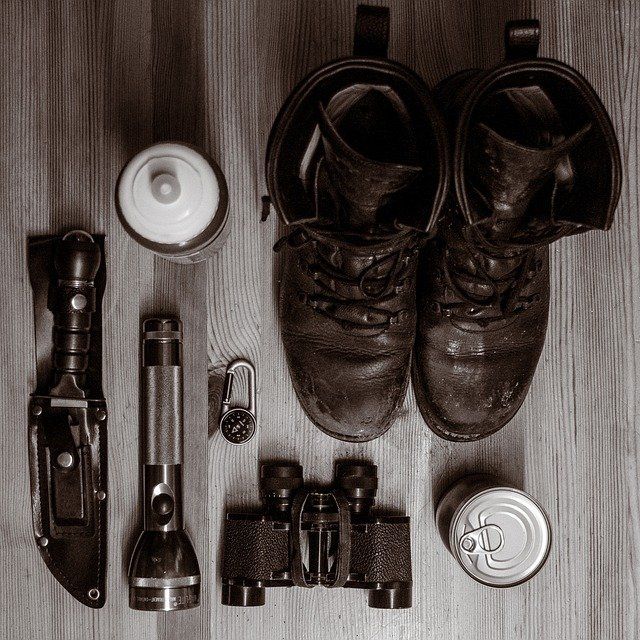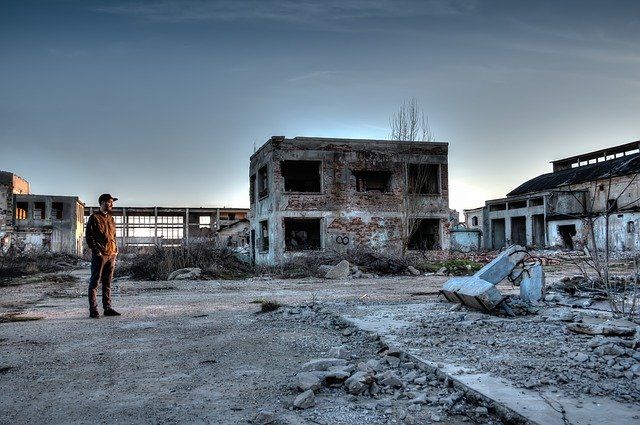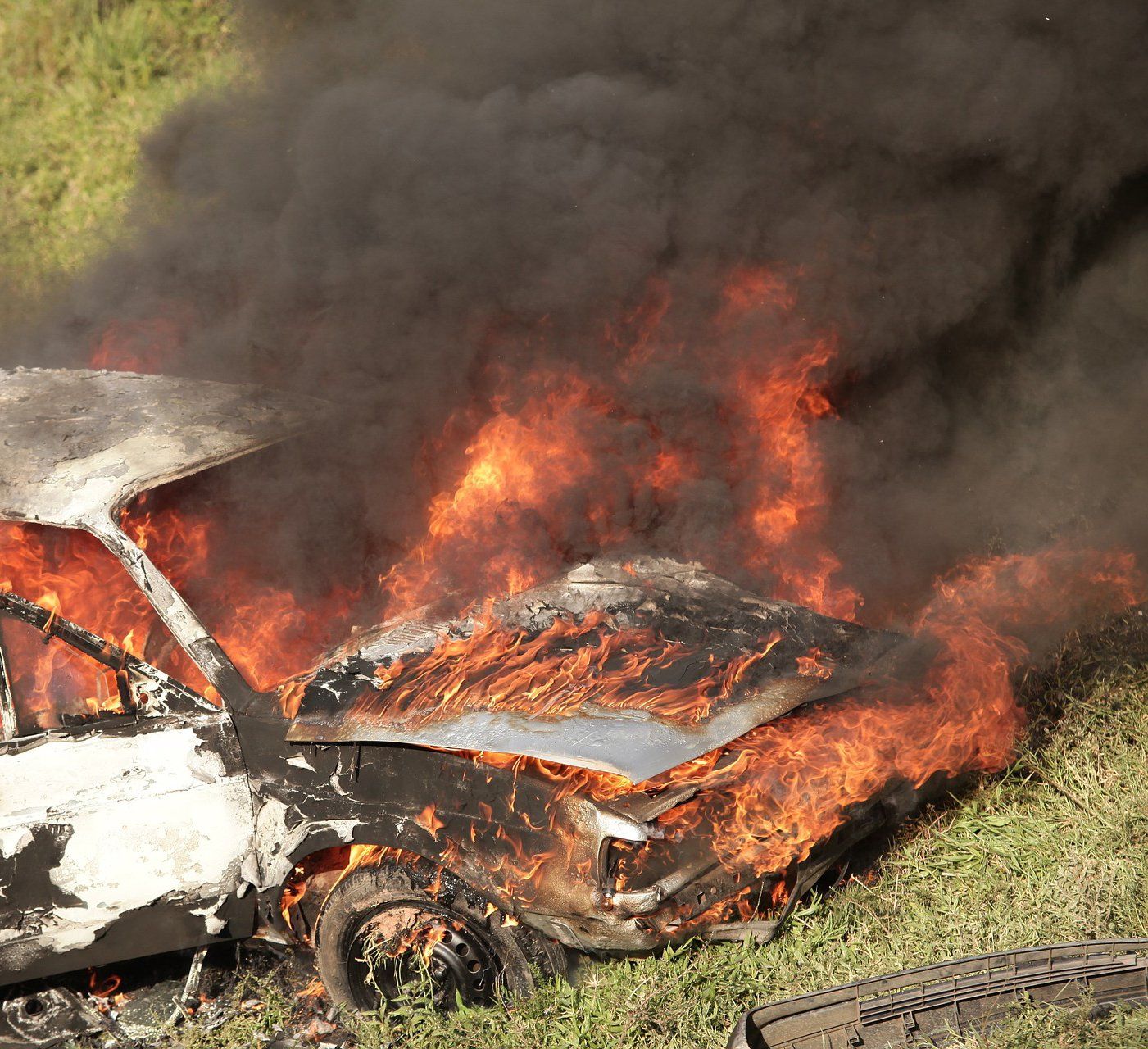This subject was forced upon the writer by the many letters and phone calls received from frightened people here in the USA. Some are on the verge of panic because of the supposed disastrous consequences of the alleged world-wide computer crash predicted to occur 1 January 2000. It was obvious that something had to be done to calm the rising panic and, to that end, that author wrote Y2K: A Reasoned Response to Mass Hysteria, released in February. The present article summarises the facts and arguments presented in that book (note ‘Y2K’ is shorthand for ‘Year two thousand’).
Survival Supplies
I gave an interview for a Y2K national TV ‘special’. The film crew was enthusiastic, but Steve Hewitt of Christian Computing Magazine and I were cut out, because our research undermined not only what the other ‘experts’ said, but also the planned advertisements for Y2K ‘survival supplies’.

A lot of money is being made. Sadly, some of the ‘Christian leaders’ sounding the loudest alarms are profiting from their connection to, and even ownership of, firms selling supplies such as freeze-dried food, electricity generators, gold coins and other goods deemed necessary for survival in the event of a catastrophe.
But resentment and disillusionment are already surfacing among those who have cashed in their life savings to buy what they are beginning to suspect will not be needed. Worst of all will be the backlash against Christianity and the gospel, when 1 January 2000 reveals that Y2K is nothing like what Christian alarmists had predicted.
Safe on board
Mounting evidence makes it clearer each day that the predicted worldwide computer crash is not going to happen. Major manufacturers have notified their suppliers that if their products are not Y2K-compliant their contracts will be cancelled. No one will buy non-compliant products; and those who sell them are being sued. In addition to nearly 200 out-of-court settlements, more than 50 Y2K-related lawsuits are working their way through the courts, with significant damages being awarded against manufacturers of equipment that won’t work beyond 1999.
No electric utility, bank, phone company or 911 service will be able to plead on 1 January 2000 that they just didn’t get around to fixing their computers! They’ve had twenty-five years to take care of that problem and not to do so would be criminal negligence, against which there’s no insurance coverage.

Reflecting irrational fears in the church, InterVarsity cancelled its Urbana Conference for the end of December 1999, concerned that flying will not be safe. Yet Jerry Greenwald, CEO of United Airlines, has promised, ‘We will make sure that you experience the start of the new millennium feeling as safe boarding our aircraft as you do every other day of every year’. Greenwald must be absolutely certain to make such a statement.
The Federal Aviation Authority (FAA) has announced that all critical components of US air traffic control will be ready for Y2K by 30 June 1999; and the FAA is also working with other nations to bring them into compliance. Canadian airports just passed a critical Y2K test: ‘It was really boring’, said a spokesman. ‘All the systems worked well’.
Banking on it
The American Bankers’ Association announced in early April that 97% of the nation’s banks are ready for Y2K and that the 3% which are not will soon be forced by regulators to merge with those which are.
The New York stock exchange and major brokerage firms have passed several Y2K tests. Senator Robert Bennett, whose pessimistic statements once supported the alarmists, now admits that Y2K at worst will be a mere ‘bump in the road’. Likewise, Peter de Jager, who was among the first to sound the alarm and was once very gloomy, now says, ‘the year 2000 problem no longer exists’.
As of 31 March 1999, the deadline set by President Clinton, only about 500 of the estimated 6,123 critical systems in all 24 US government agencies were not yet Y2K-compliant, but soon would be. Media reports are often sensationalised to excite the public. An article in papers across the country in mid-March was headlined, ‘Glitch at nuke plant shows perils of Y2K tests’. It reported that testing for Y2K shut a nuclear plant down for seven hours. In fact, the shut-down had nothing to do with Y2K; an engineer had improperly set a test clock. There was no peril, the problem was discovered and fixed, and power continued to flow.

Check the gas tank
The truth about the unlikelihood of significant Y2K problems is found in the technical journals, which also record the thoroughness with which the experts are nevertheless providing for every contingency. It is there that we discover how the real experts view Y2K, and it does not resemble at all what some Christian leaders are saying. The information provided by these journals rarely finds its way into the popular media. The following quotes are from recent editions of such publications.
‘Pshaw! This stuff is beginning to look like a blatant attempt to deceive the public into fixing something that probably isn’t broken. If I see many more releases blowing the whole Y2K thing out of proportion, I won’t be responsible for my actions…!’ (Computer Technology Review, January 1999).
‘Major manufacturers are well under way with year 2000 software bug fixes’ (Control Engineering, January 1999).
‘Department of Defense is in “hyper-drive” to solve Y2K problem … 1,673 of 2,300 critical systems were Y2K-compliant last December’ (Military & Aerospace Electronics, February 1999).
The high-tech journals, therefore, seem almost contemptuous of Y2K. The media are catching on and further playing down the issue. In April, CNN’s Headline News repeatedly ran the same clip about computer chips in autos (Christian ‘experts’ have warned that trucks supplying grocery stores won’t run). Mechanics and automakers explained that chips running cars [and trucks] don’t care what year it is. It was suggested that owners of cars that won’t start on 1 January 2000 might check the gas gauge!

Ruined lives
In the face of all the evidence to the contrary, Christian leaders keep sounding the alarm. As a result, the church is being led into the real disaster of Y2K: ruined lives and testimonies, disillusionment and shattered faith.
Consider the backlash there will be, discrediting the church, our Lord, the gospel and Bible prophecy, when Y2K turns out to be so much less than many have warned. The cost will be incalculable in discredited testimonies and disrupted lives.
Who will any longer believe those who were so certain of disaster that they organised neighbourhoods, persuaded family and friends to buy generators and purchase huge stores of food and supplies; and tied it all in with Bible prophecy and evangelism? Who will restore the shattered faith of disillusioned Christians who sold their homes to move into a country hideaway or some ‘safe, self-contained Y2K Christian community’ they saw advertised in a Christian publication such as Falwell’s National Liberty Journal? We know of churches already dividing and families breaking up over Y2K, and worse could follow.
Abuse of Scripture
There has been a serious abuse of Scripture. A major mantra for Christians sounding the alarm is, ‘A prudent man foreseeth the evil, and hideth himself: but the simple pass on, and are punished’ (Proverbs 22:3; 27:12). That Scripture has no bearing upon Y2K. Solomon’s prudent man recognises the evil that is coming and thus knows what to hide from. But the alarmists, after telling us how disastrous it might be, then hide behind this specious phrase, ‘No one really knows what will happen’. Yet they want everyone to prepare – for what? This uncertainty breeds ‘a spirit of fear’ (2 Timothy 1:7).
Another verse is used to make us feel guilty for not storing up vast amounts of food and supplies: ‘But if any provide not for … those of his own house, he hath denied the faith and is worse than an infidel’ (I Timothy 5:8). Yet how is one to provide for one’s family without knowing the extent of the problem? If we were to prepare for six months and it were to last a year, what then?

Possible scenarios are presented from a mild bump to total disaster, lasting anywhere from a few days to years. Gary North predicts that 1.5 billion people could die from cold, starvation, riots, etc. In What Will Become of Us? (The International Crisis Management Center, 1998, pp. 111-16), Julian Gregori declares: ‘I predict … failures of electrical power … Most Y2K victims will be refugees who are attempting to flee anarchical conditions in the cities… by April 2000, at least seven out of every ten Americans will lose their jobs or their present level of income … martial law may be imposed in late 1999 … Senator Bennett has publicly compared [Y2K] to Tower of Babel catastrophism’.
Prayer or divination?
Such outdated quotes continue to be offered. To cover all bases, they hold open the possibility of anything from mild to meltdown. ‘Don’t panic’, they tell us, even while they lay out scenarios that offer more than enough cause for panic. ‘Hope for the best, and prepare for the worst’, we are told.
What are we to do? ‘Pray about it’, they say. Thus prayer is turned into divination; seeking a message from God about what to do, when action should be dictated by facts. It is like asking God to reveal which stock to invest in on Wall Street, or whether one should get out of bed in the morning. Christian alarmists cannot tell us which of their scenarios will actually happen, so God is supposed to tell us instead.
Spurred on by such advice, many Christians testify that God has told them to sell their homes and move out into an isolated place far from any city because Y2K is going to break down social and civil order. Abandoning friends and neighbours, they have opted for the ultimate in self-interest, some even unashamedly buying guns and fortifying their hideaways and communicating only by e-mail.

Others, unable to change their residences, have plywood ready to nail over windows and an old car they will park in their driveway and burn on 1 January 2000, so that the rampaging mobs will think the house has already been looted and will pass it by. Yet such Christians claim to have prayed and been led by God to adopt these measures. What will happen to their faith, the faith of their families and friends, and what message will it send to the unsaved when this ‘guidance from God’ turns out to be falsehood and folly?
Needy people
Other Christians are convinced that this will be the church’s finest hour, that Y2K will provide the greatest opportunity in history to win the lost to Christ. It is supposedly up to Christians to feed their unsaved friends and neighbours – and when they come for food and warmth they will be open to the gospel and will be won to Christ.
However, starving people are interested in food, not religion; and when desperate enough they’ll do anything to get it. The early church was specifically told by a true prophet of a coming ‘great dearth throughout all the world’ (Acts 11:27-30). Yet under the Apostles’ leadership they did not store up food to feed unsaved neighbours, nor did they seek to use this disaster for evangelism. Nor is it biblical (or logical) to attempt to do so today.
The truth is that the world right now contains millions of starving and dying people who need help and the gospel. What a delusion to wait for Y2K to provide the greatest opportunity while neglecting the challenges we already face! So what should we do as Christians? Prudence requires a reasonable stock of supplies on hand for any emergency (earthquake, hurricane, flood). At all times we should be witnessing diligently to family, neighbours, and the wider circle of unsaved with whom we come in contact. We can trust the One who wrought our eternal salvation to bring us through this earthly scene and to our heavenly home in triumph.



